Lexus unveils its compact hatchback, the CT 200h

The past decade has seen Lexus establish itself as an industry leader in bringing advanced technologies to the premium car market. Now the Japanese luxury brand is turning the same thinking to a smaller scale, with the introduction of their first compact hatchback, the newly unveiled CT 200h.
The speed at which Lexus is developing as a brand is glaringly obvious. Just 13 months ago this high-end division of Toyota Motor Corp assembled the world media to display the Lexus LFA (W*130), the company's first attempt at a high performance super-car, pitched directly against established players like Porsche, Ferrari and Aston Martin. Yet just a few weeks ago a similar event was held in the autumnal forests of Chantilly, Paris, to introduce the far more mass market Lexus CT 200h.
You may be wondering how these vastly differing machines can draw even the smallest comparison. The former is a snarling, lightweight, two-seater, capable of over 200mph, while the latter (if driven sparingly) will emit a minimal CO2 reading of 96/km* while rewarding its owner with a combined fuel economy of 68.9mpg.
Although the two cars are undeniably different animals, an understanding of the Lexus philosophy reveals that the two vehicles share an almost identical ambition. With the average Lexus customer's age hovering statically around their mid-fifties, both the LFA and the CT 200h have been tasked with attracting a younger clientele, broadening Lexus's luxury portfolio.
Supercars are a very limited market (just 500 LFAs will be built), but the compact luxury segment is booming. With an on the road entry-level CT 200h priced at £23,485, the company hopes its showrooms will entice customers who might otherwise consider the Audi A3, BMW 1 Series or Volvo C30, when it launches in the UK in Spring 2011.
Underpinning the CT 200h is Lexus's tried and tested hybrid system, here paired to a car with far less weight than their saloons or SUVs. The company is confident enough to include only one engine at launch, lifted from sister company Toyota's Prius and Auris Hybrids models. This second-generation full hybrid system features a 1.8 litre VVT-I petrol engine, which works (independently or in tandem when needed) with a powerful electric motor running off a high performance Nickel battery.
The combined system offers max output of 136hp, allowing a 0-62mph time of 10.3 seconds while the vehicle tops out at 112mph. These are fairly mediocre figures, placing the car firmly in the middle its segment and confirming that the CT 200h was never designed with performance in mind.
Wallpaper* Newsletter
Receive our daily digest of inspiration, escapism and design stories from around the world direct to your inbox.
Despite the engine's lethargic nature the smart hatch is capable of operating in an electric only (EV) mode, using battery power alone while generating zero CO2 along with zero NOx emissions, a very welcome option in an urban rush hour situation. Arguably even more impressive is the motor's ability to act as a high output generator - optimizing energy management by recovering kinetic energy under regenerative braking, while storing and replenish the battery - an all together neat solution to typical heat wastage.
The car downscales typical Lexus cues, with a bold and powerful front to create a simple yet elegant dynamism to the apex of the vehicle. To the rear, a pronounced step in the tailgate flows from the muscular rear wheel arches and the beefy rear bumper, giving the hybrid a broad, firmly fixed stance.
Once inside, the brand's trademark interior quality shines through. Confronted with an airy cabin, the driver can expect a sporting and functional driver-focused cockpit, while the passenger will enjoy a tranquil and comfortable journey. We tested a US-specification vehicle, but were assured the finish on European vehicles would be exactly the same.
The more cynical amongst us may conclude that the CT 200h is little more than an embellished Prius (they share the same powertrain). Nonetheless, we feel Lexus is onto a winner, scaling down while ramping up luxury and low-emissions. The CT 200h might not lead its class, but it's a valuable stepping-stone designed to keep the company at the centre of the fast-evolving environment and efficiency-conscious marketplace.
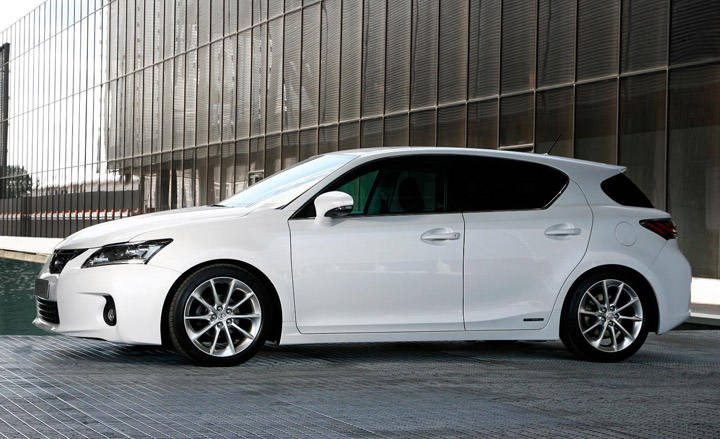
Supercars are a very limited market, but the compact luxury segment is booming. With an on the road entry-level CT 200h priced at £23,485, the company hopes its showrooms will entice customers who might otherwise consider the Audi A3, BMW 1 Series or Volvo C30, when it launches in the UK in Spring 2011.
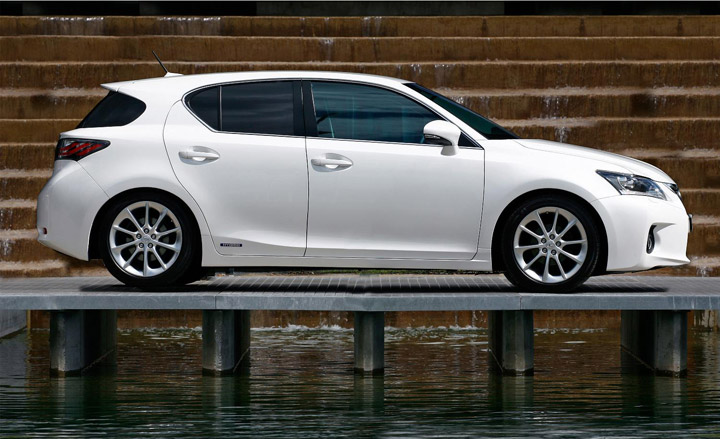
Underpinning the CT 200h is Lexus’s tried and tested hybrid system, here paired to a car with far less weight than their saloons or SUVs.
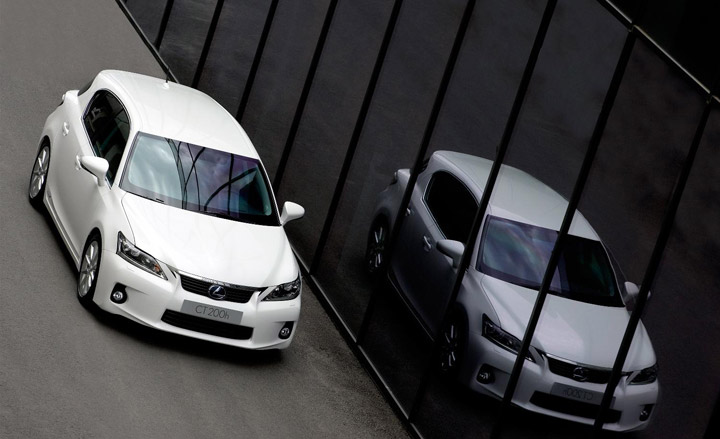
The smart hatch is capable of operating in an electric only (EV) mode, using battery power alone while generating zero CO2 along with zero NOx emissions, a very welcome option in an urban rush hour situation.
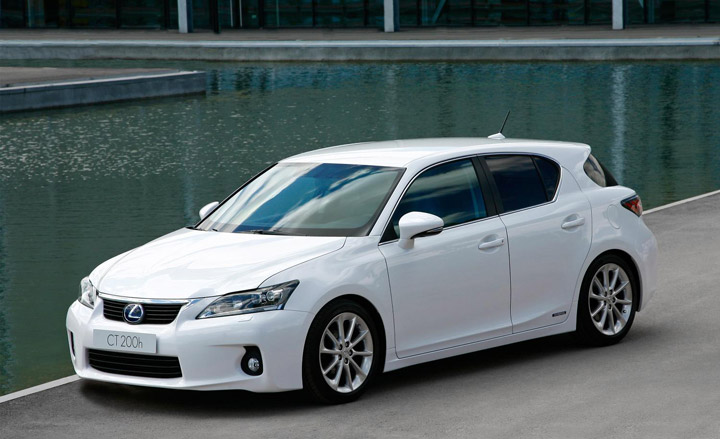
The car downscales typical Lexus cues, with a bold and powerful front to create a simple yet elegant dynamism to the apex of the vehicle. To the rear, a pronounced step in the tailgate flows from the muscular rear wheel arches and the beefy rear bumper, giving the hybrid a broad, firmly fixed stance.
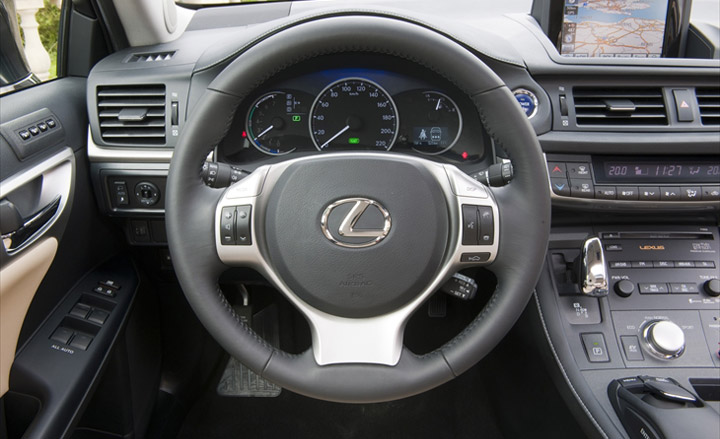
Once inside, the brand’s trademark interior quality shines through. Confronted with an airy cabin, the driver can expect a sporting and functional driver-focused cockpit, while the passenger will enjoy a tranquil and comfortable journey.
-
 The Subaru Forester is the definition of unpretentious automotive design
The Subaru Forester is the definition of unpretentious automotive designIt’s not exactly king of the crossovers, but the Subaru Forester e-Boxer is reliable, practical and great for keeping a low profile
By Jonathan Bell
-
 Sotheby’s is auctioning a rare Frank Lloyd Wright lamp – and it could fetch $5 million
Sotheby’s is auctioning a rare Frank Lloyd Wright lamp – and it could fetch $5 millionThe architect's ‘Double-Pedestal’ lamp, which was designed for the Dana House in 1903, is hitting the auction block 13 May at Sotheby's.
By Anna Solomon
-
 Naoto Fukasawa sparks children’s imaginations with play sculptures
Naoto Fukasawa sparks children’s imaginations with play sculpturesThe Japanese designer creates an intuitive series of bold play sculptures, designed to spark children’s desire to play without thinking
By Danielle Demetriou
-
 Lexus makes its mark on Milan Design Week 2025 with four new interactive installations
Lexus makes its mark on Milan Design Week 2025 with four new interactive installationsLexus’ annual installation at Milan Design Week focuses on human-centred technology and the role of data and design in shaping the luxury car of the future
By Jonathan Bell
-
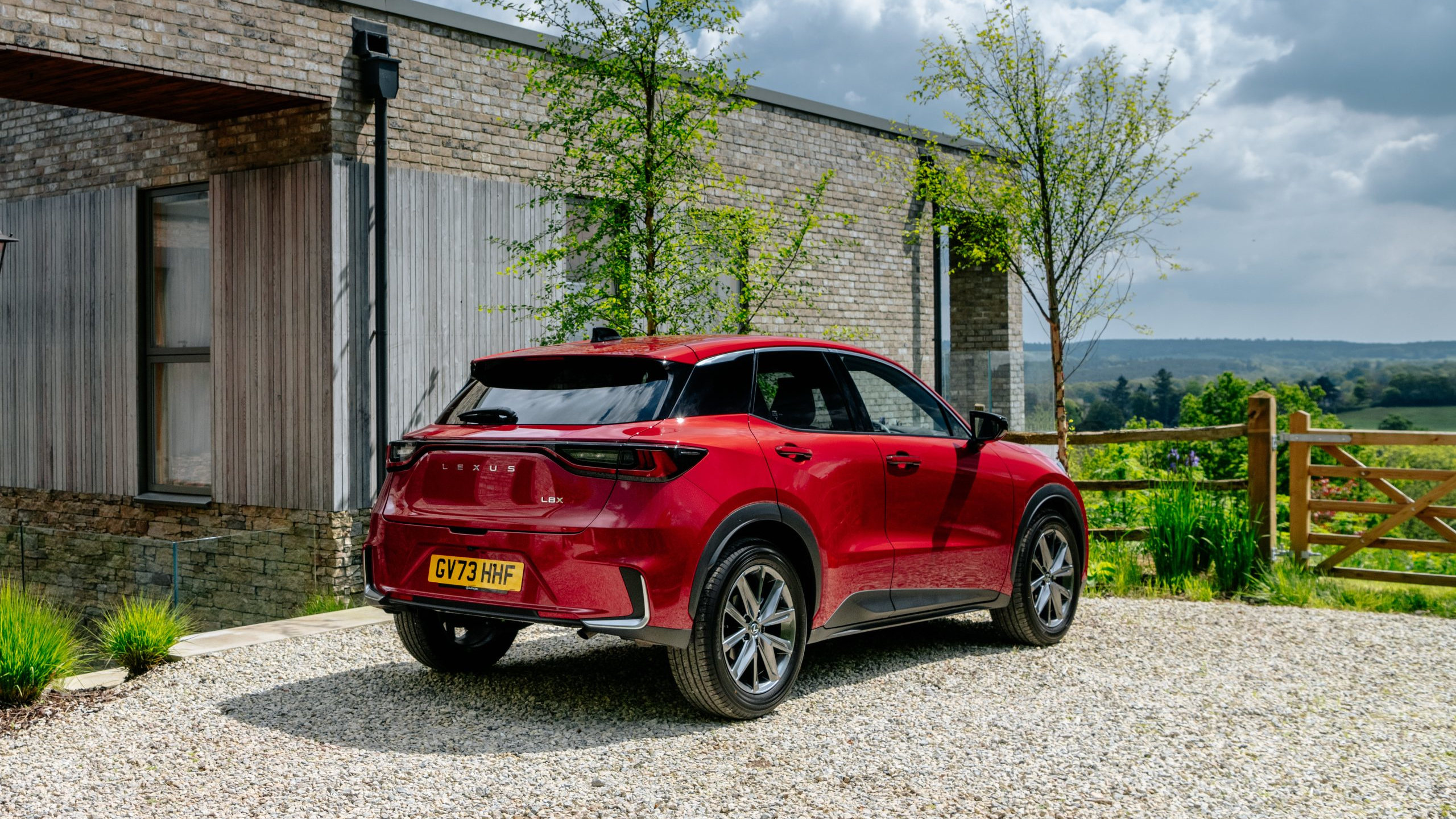 The Lexus LBX crams automotive luxury into a pocket-sized contemporary package
The Lexus LBX crams automotive luxury into a pocket-sized contemporary packageWe explore the world of Lexus’s diminutive LBX, and ponder on the validity of luxury design in a super small car
By Jonathan Bell
-
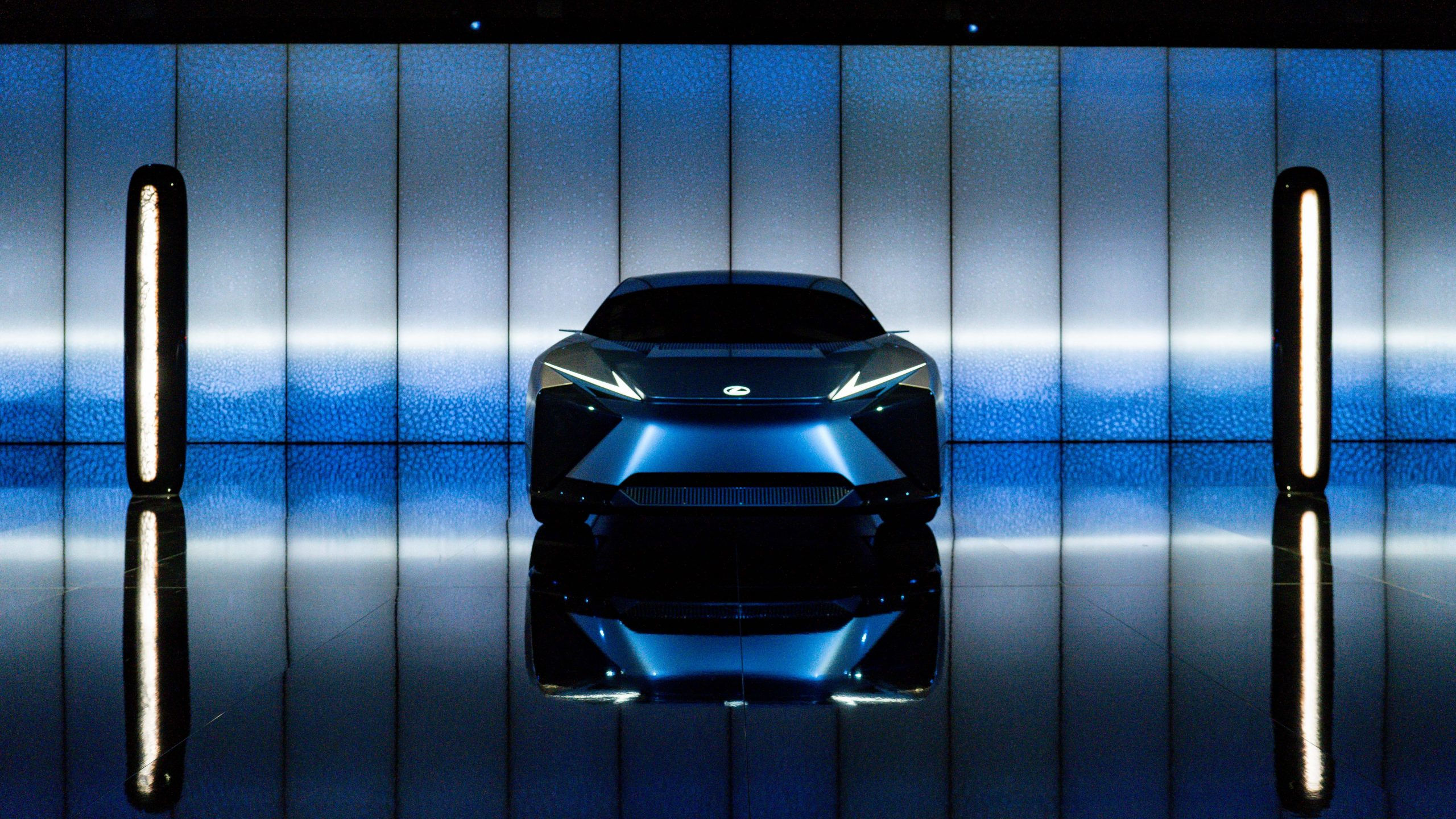 Lexus installation explores time at Milan Design Week 2024
Lexus installation explores time at Milan Design Week 2024Lexus brought designer Hideki Yoshimoto’s ‘Beyond the Horizon’ to Milan’s Art Point, part of its ongoing series of collaborations with Fuorisalone
By Nargess Shahmanesh Banks
-
 LEVC’s L380 is a truly magnificent minivan
LEVC’s L380 is a truly magnificent minivanThe London Electric Vehicle Company’s L380, is a magnificent minivan designed for upscale long-distance travel, as the maker of the London Taxi branches out into all-purpose EVs
By Jonathan Bell
-
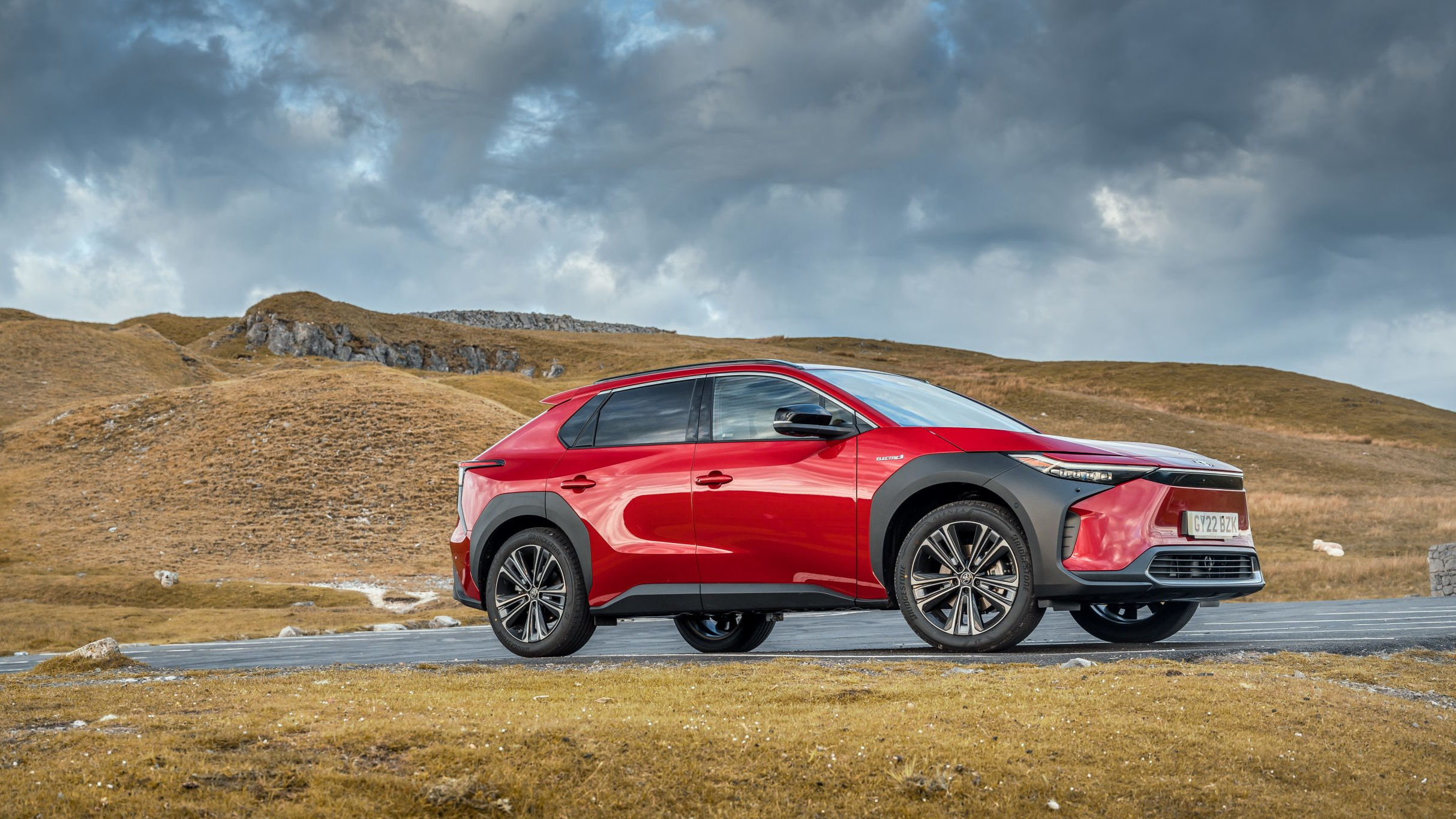 Toyota bz4X SUV is the marque’s first pure electric vehicle
Toyota bz4X SUV is the marque’s first pure electric vehicleThe Toyota bz4X is our first chance to explore how the long-standing masters of mass automobile production make an EV
By Jonathan Bell
-
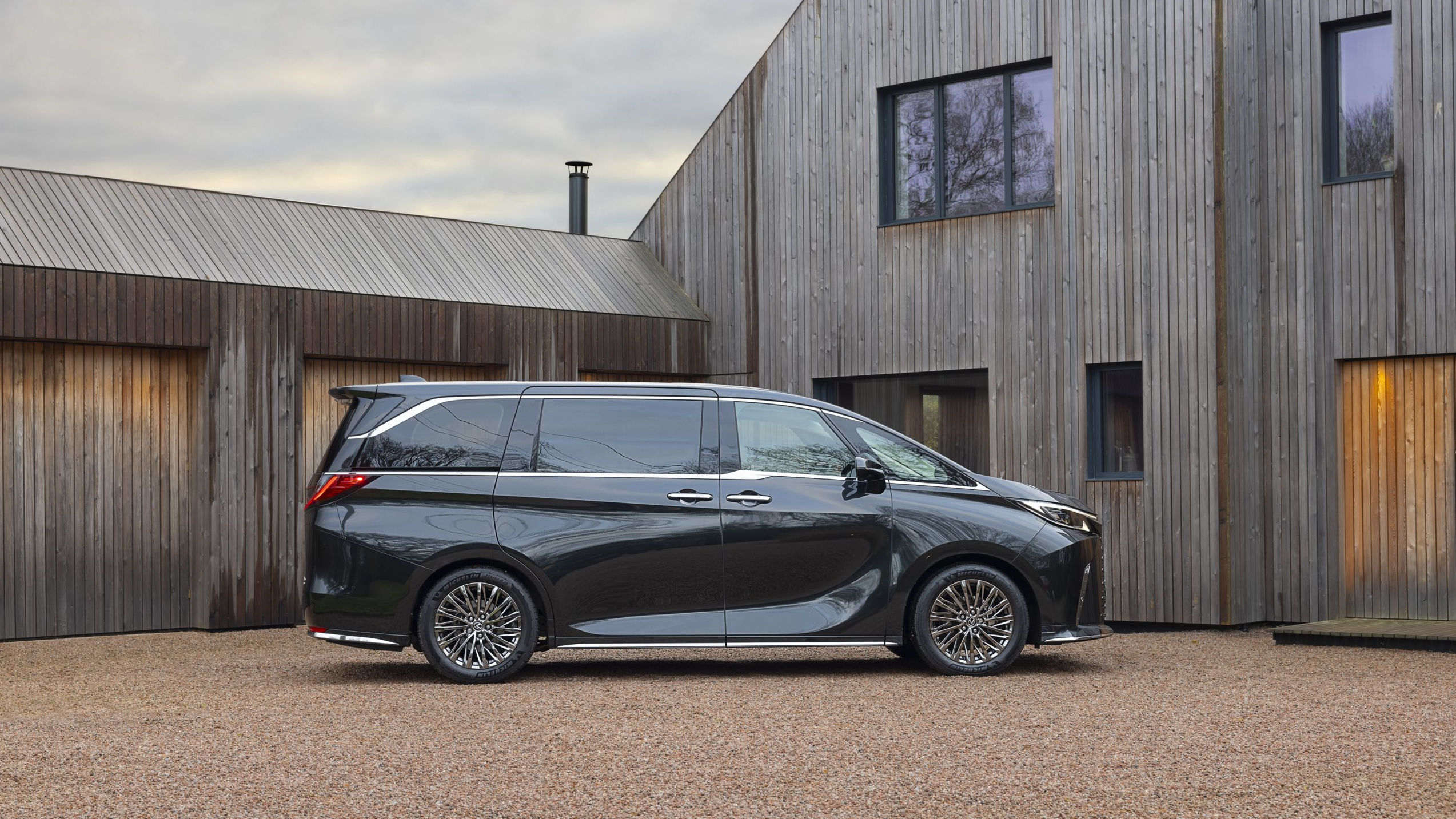 Lexus LM wants you to have the back-seat ride of your life
Lexus LM wants you to have the back-seat ride of your lifeThe back of the Lexus LM has the space, grace and accoutrements to rival a Rolls-Royce. Can this upscale minivan reinvent the luxury car?
By Jonathan Bell
-
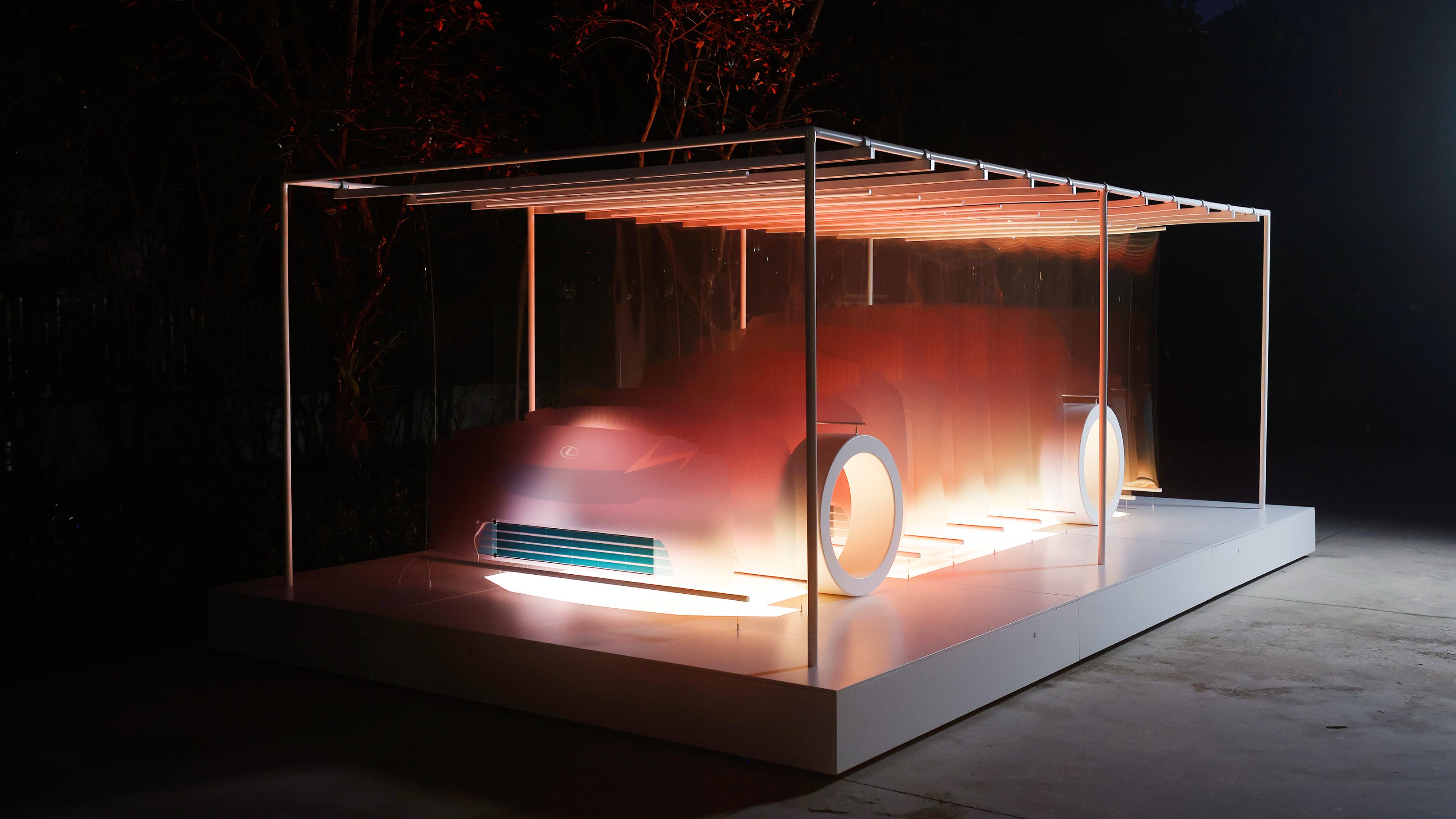 Marjan van Aubel’s ‘8 Minutes and 20 Seconds’ installation with Lexus is our Best Solar Roller
Marjan van Aubel’s ‘8 Minutes and 20 Seconds’ installation with Lexus is our Best Solar RollerThe Dutch solar designer Marjan van Aubel mounted an interactive installation in Miami to introduce Lexus’ new zero-emission LF-ZC concept car
By Adrian Madlener
-
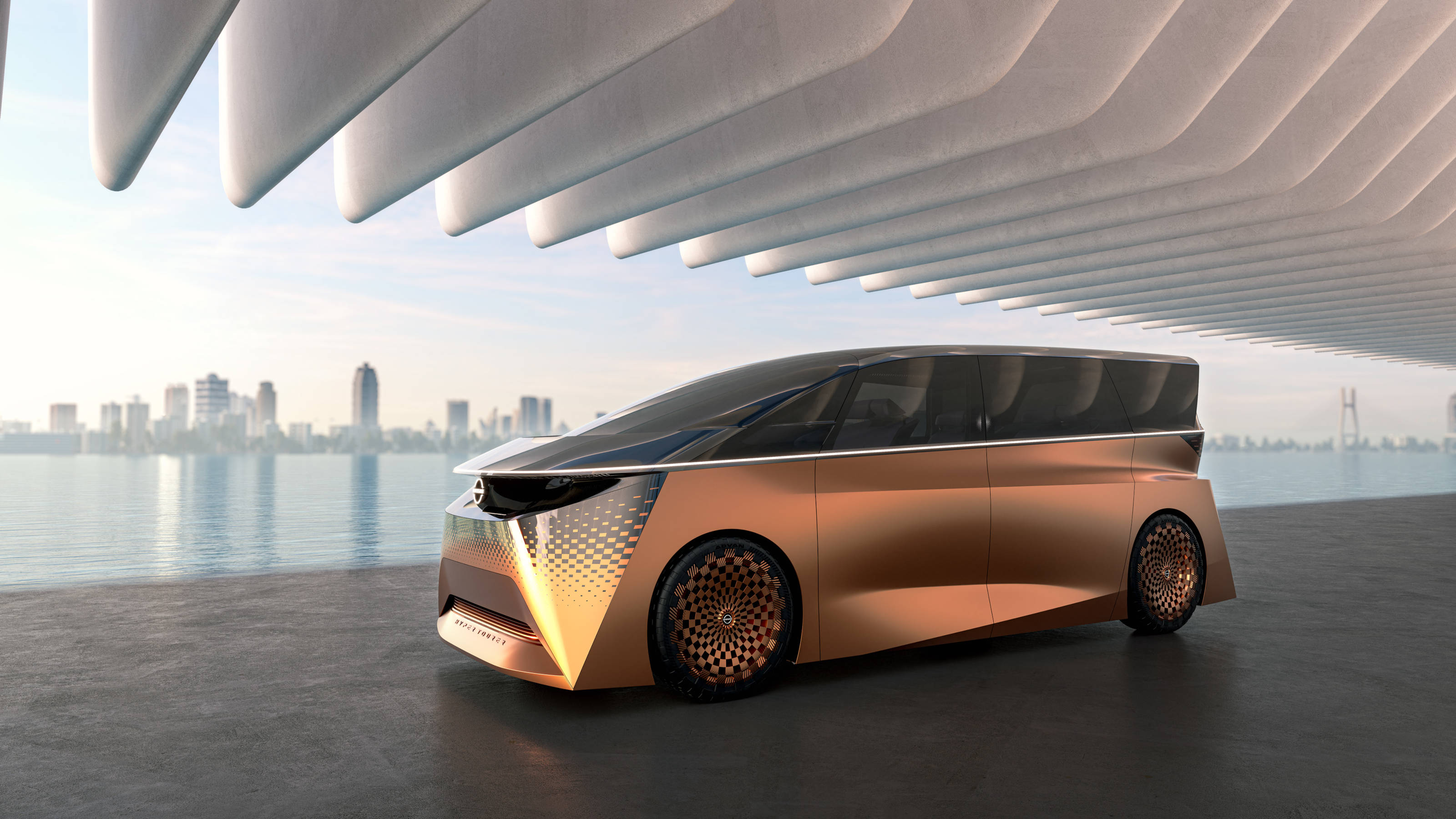 The debut Japan Mobility Show saw the country’s carmakers preview the near future
The debut Japan Mobility Show saw the country’s carmakers preview the near futureThe 2023 Japan Mobility Show offered up a vast array of futuristic transportation, from concept sports cars to autonomous taxis, and eVTOL aircraft
By Jonathan Bell